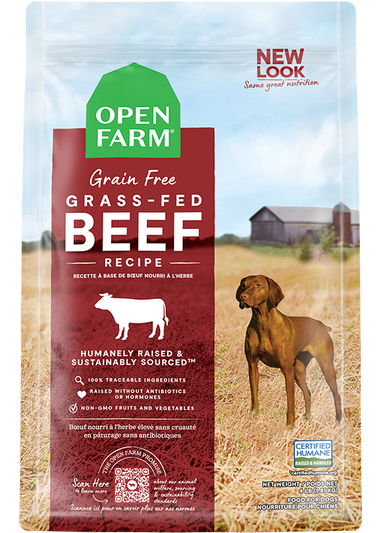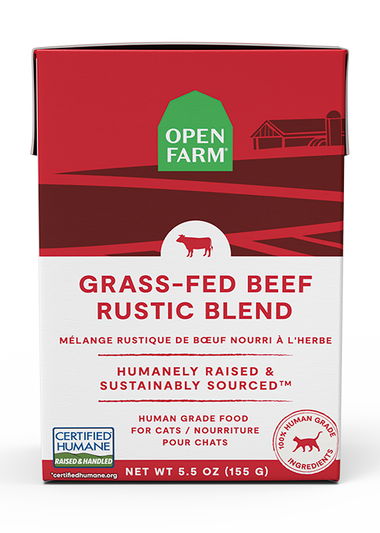From treats to toothpaste, beef-flavored products have dominated the pet market since the market was formed. And it’s no wonder--dogs and cats absolutely love the stuff!
If pets wolf down whatever beef they can find, what’s all the hype about grass-fed beef? Is it just a fancy marketing gimmick to dupe the ultra health conscious? If that’s the way you think, you aren’t alone. Many people do not properly understand what grass-fed beef is, nor the benefits of grass-fed beef.
But as it turns out, the hype is indeed justified. Here we discuss the perks of grass-fed beef for dogs and cats.
Is grass-fed beef better for my pet’s overall health?
When you think of cattle, what comes to mind is probably an image of a black and white cow grazing on a grassy knoll. But this is far from the conditions at modern cattle farms. And that has an effect on the nutritional content of the beef produced.
Grain-Fed vs. Grass-Fed Beef
Most commercial cow farms have a system that is made to maximize a beef cow’s growth rate. A bigger animal means more meat at the slaughterhouse. A faster-growing animal means more sources of meat per cycle. And allowing cattle to graze out on the field simply cannot give the results commercial businesses need.
Most beef used in dog food and treats are from cows that are grain-fed, not grass-fed. These animals spend most of their lives in a feedlot where they get minimal exercise. They are given hormones and antibiotics to ensure better growth rates.
While the conditions at commercial cattle farms allow them to provide beef used in the majority of dog and cat food brands all over the world, it does come at a cost. The nutritional profile of the final product is very different from that of beef from grass-fed cows, and that has an impact on your pet’s health.
What is grass-fed beef?
Grass-fed beef comes from cows who have been fed mostly grass their entire lives. Farmers who rely on this type of system typically believe that these animals should be raised in conditions as close as possible to their natural state. They may not be able to produce as much as commercial farms, but they are able to produce beef that has a healthier nutritional profile and lessened risk of residue.
As such, many farms that specialize in grass-fed beef allow pasture-feeding instead of feedlot-feeding, giving these animals the freedom to roam as their ancestors did. This entails a lot of resources, as cattle need to eat acres worth of high-quality grass in order to grow.
These farms usually veer away from hormone therapy to allow the cows to grow at the natural pace. Farmers rely on biosecurity and good management practices instead of antibiotics to protect their cattle from diseases. This way, the beef produced is hormone and antibiotic-free.
Note that not all beef farms are created equal. Look for third party certifications to ensure the grass-fed beef you buy for your dog or cat is also ethically raised, antibiotic-free, hormone-free, and sustainably produced.
Thankfully, Open Farm’s beef products proudly carry the seal of Certified Humane and Global Animal Partnership, testament to the fact that the grass-fed beef meals you give to your furry best friend is as high quality and ethically-raised as possible.
Health benefits of grass-fed beef
The production of grass-fed beef is vastly different from that of commercially-raised beef. So how does that translate into differences in the final product and what does it mean for your pet?
When one looks at the nutritional profile of antibiotic-free, hormone-free, grass-fed beef, it’s easy to see why it’s more beneficial for your dog or cat than commercially-raised beef.
High in Omega-3 Fatty Acids
Grass-fed beef has a higher amount of omega-3 fatty acids than commercially-grown beef. And that’s a very good thing for your furry best friend!
Pet diets require high amounts of omega-3 because they can’t produce it on their own. The diet is the sole source of this important fatty acid, which plays an important role in regulating brain function, heart health, skin integrity, and coat quality. It helps proper development of the brain and eyes in puppies and kittens, and can help improve brain function in older dogs and cats.
Omega-3 also helps balance out the levels of omega-6 fatty acids. Animals only need a moderate amount of the latter, which is easily fulfilled in the other components of pet food. Grain-fed beef provides excess omega-6 fatty acids, which causes an imbalance in the proportions of fatty acids required by your four-legged pal.
High in Vitamins and Antioxidants
Vitamins and antioxidants are important for dogs at any age. Grass-fed beef is found to increase the levels of precursors to Vitamins A and E. Vitamin A is essential to skin, muscle, and coat health, while Vitamin E is an important component in the body’s defense mechanism against oxidative stress.
The same study found that grass-fed beef contains higher levels of antioxidants like glutathione and superoxide dismutase that help fight against cancer.
Antibiotic- and Hormone-Free
Hormones are used by commercial farm growers to hasten muscle and bone growth. Antibiotics are given to prevent diseases. In the past, irresponsible use of both have led to chemical residues in the beef sold at the market, with consequences to the humans and animals eating it. Even worse, the widespread use of antibiotics contributed to antibiotic resistance that veterinarians and health care professionals are fighting to this day.
While most commercial farms are compliant with drug withdrawal times to ensure that low or no amounts of hormones and antibiotics are present in the meat they sell, you may not be comfortable with feeding that to your dog or cat.
Antibiotics may alter the composition of their natural gut microbiota, causing digestive problems. And even small amounts of exogenous hormones could cause a slew of metabolic and reproductive problems for your pets.
Using meat from cattle raised completely free of antibiotics or hormones is the best way to ensure that your dog or cat will not be ingesting anything that could negatively impact their body’s normal processes.
A trusted source of grass-fed beef for dogs and cats
If you’re sold on the benefits of incorporating grass-fed feed into your pet’s daily diet, welcome to the club! Fur parents everywhere turn to Open Farm pet food for ethically-raised, hormone- and antibiotic-free grass-fed beef.
We operate under the principle that all animals should be treated with respect and care for their wellbeing. That doesn’t just mean companion animals, but food animals as well. Open Farm supports farms that share the same values. Their cattle are raised the natural way--grass instead of grain, pasture instead of feedlots, with no antibiotics or hormones.
And the result? Nutritious, delicious food for our beloved dogs and cats that bear the seal of approval from the Certified Humane and Global Animal Partnership.
Open Farm incorporates grass-fed beef into different products to suit every pet’s preference. For those who want a convenient feeding option for their canines, Grass-Fed Beef Dry Dog Food provides the benefit of grass-fed beef in kibble form. For cats who want a soft and juicy meal or meal topper, Grass-fed Beef Rustic Blend hits the spot. For a soupy snack, our Grass-fed Beef Bone Broth is a great meal topper that contains grass-fed beef, collagen, and a wealth of other nutrients that rounds out your cat’s or dog’s diet.
The health of your pets rely largely on what they eat everyday. Protein is an important part of carnivore diets, so you will want to give only the best quality meat to your pets. And if you can support farms that hold the same values for animal welfare as you do, then it’s a win-win.
That’s where Open Farm products come in. From grass-fed beef to pasture-raised lamb to wild-caught salmon and more, we have a range of different options that all reflect the value we put into bringing you ethically-sourced, naturally-raised, premium quality pet food.





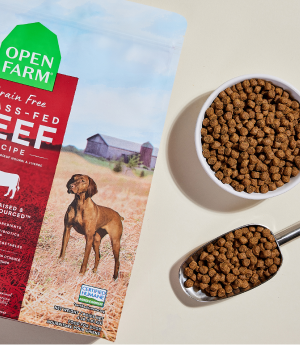
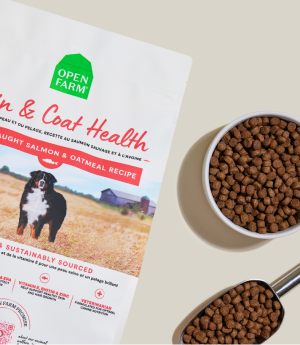
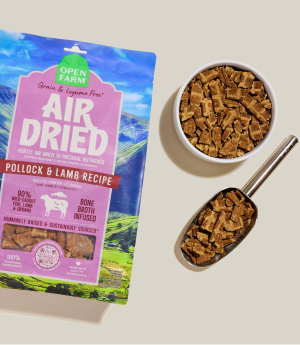
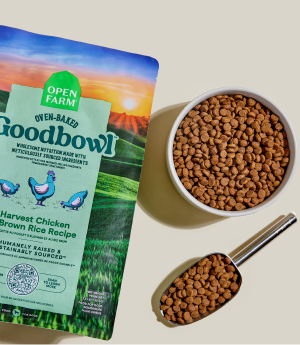
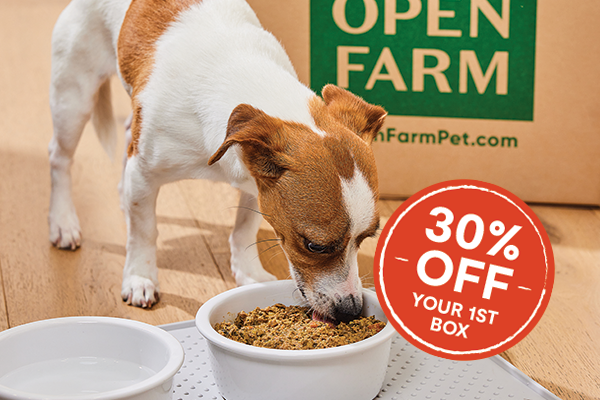

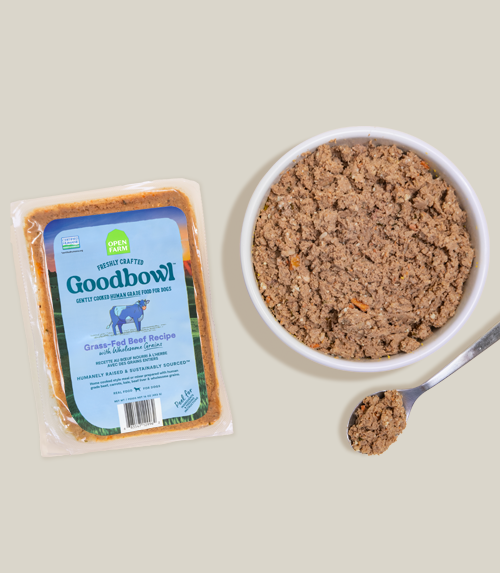

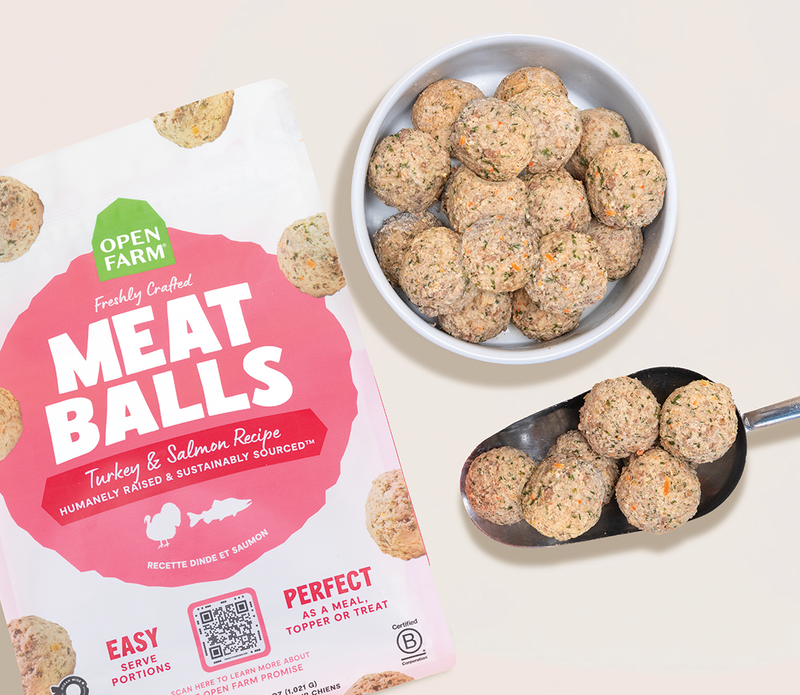
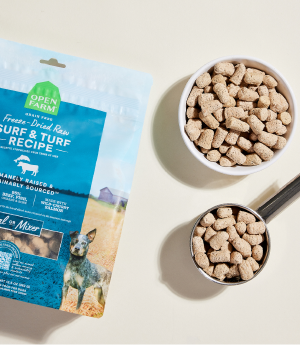
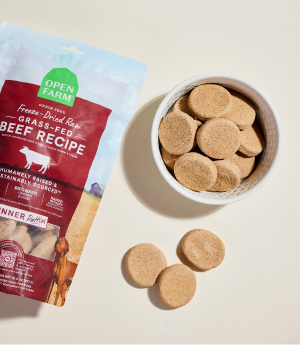
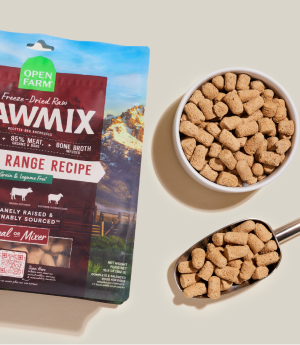
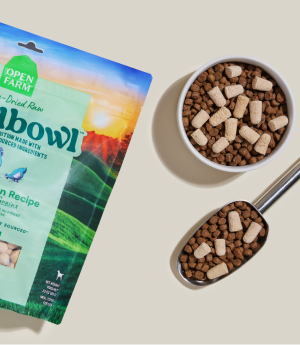
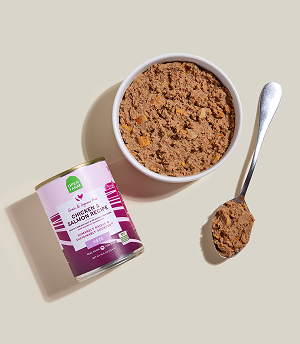
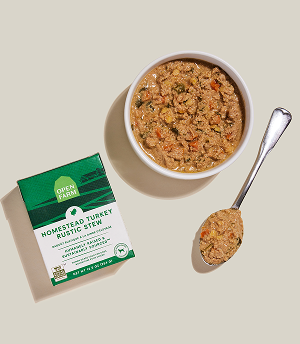
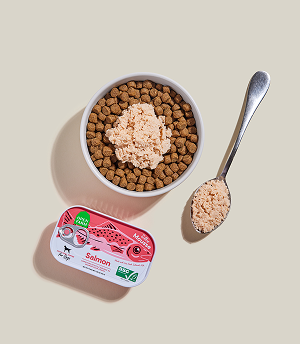
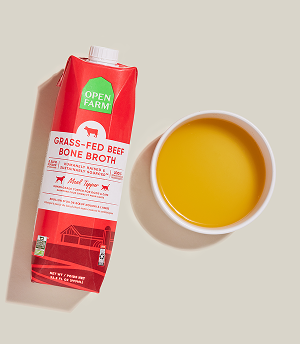

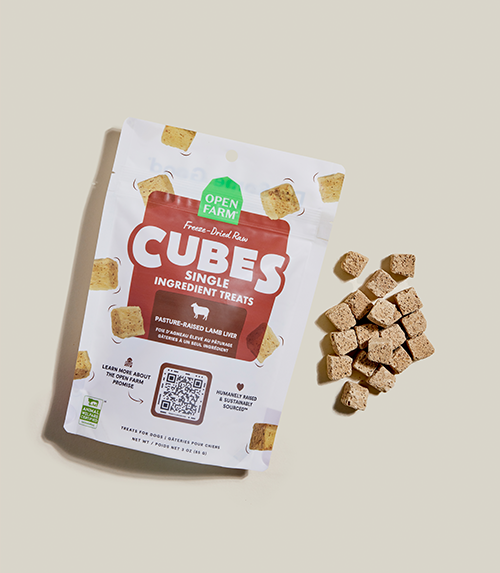
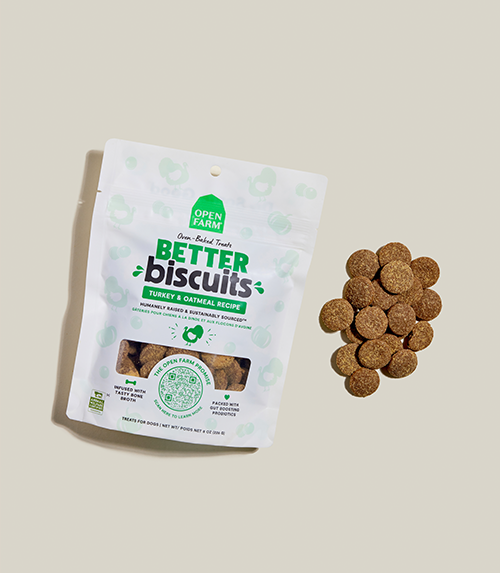











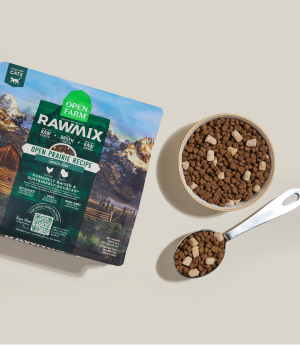
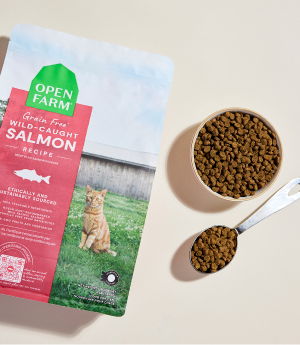
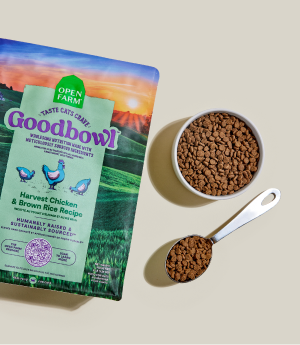
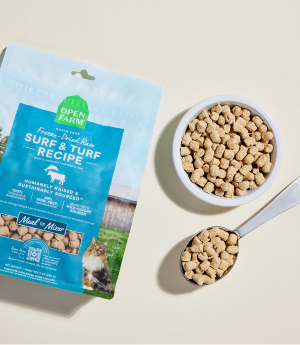
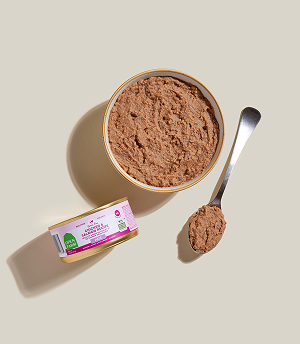
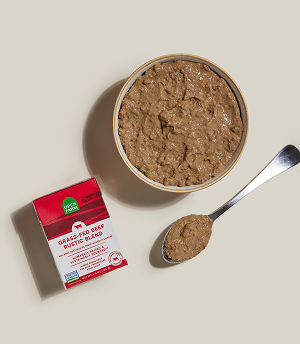
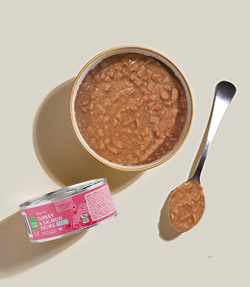
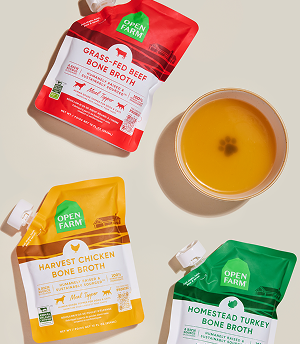
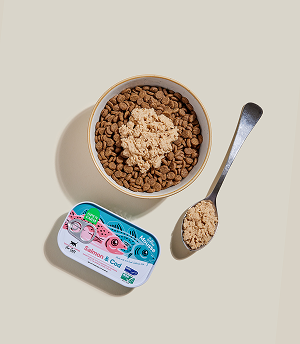
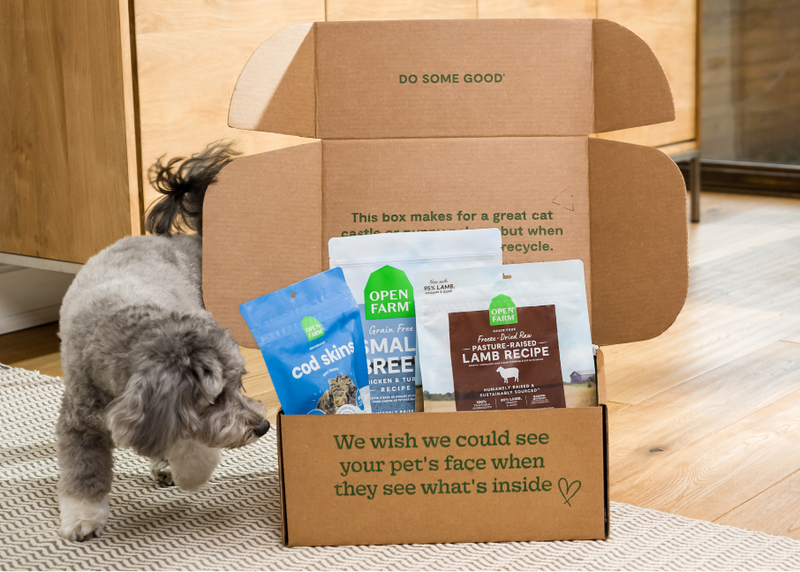
 Sign In
Sign In
 Create Account
Create Account





